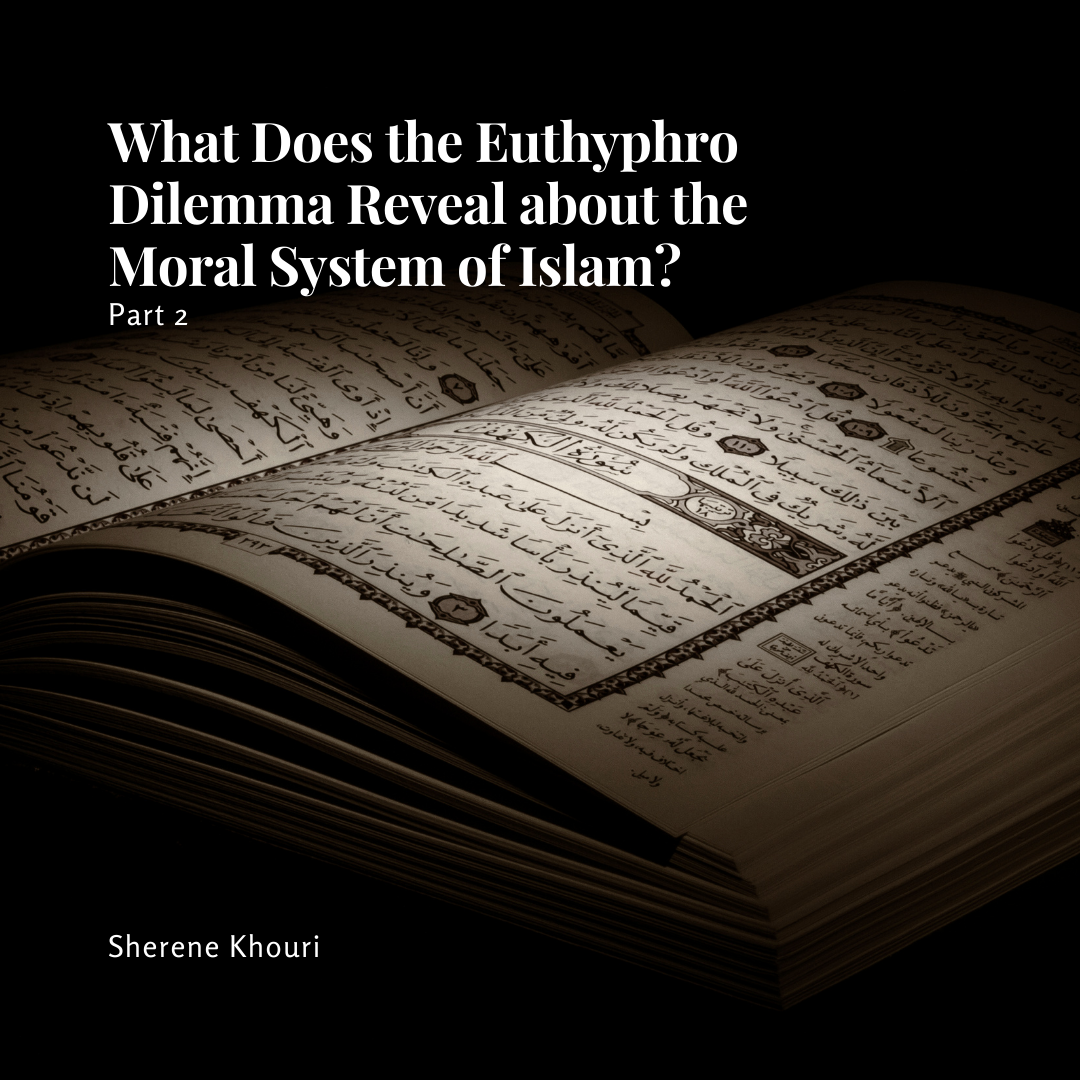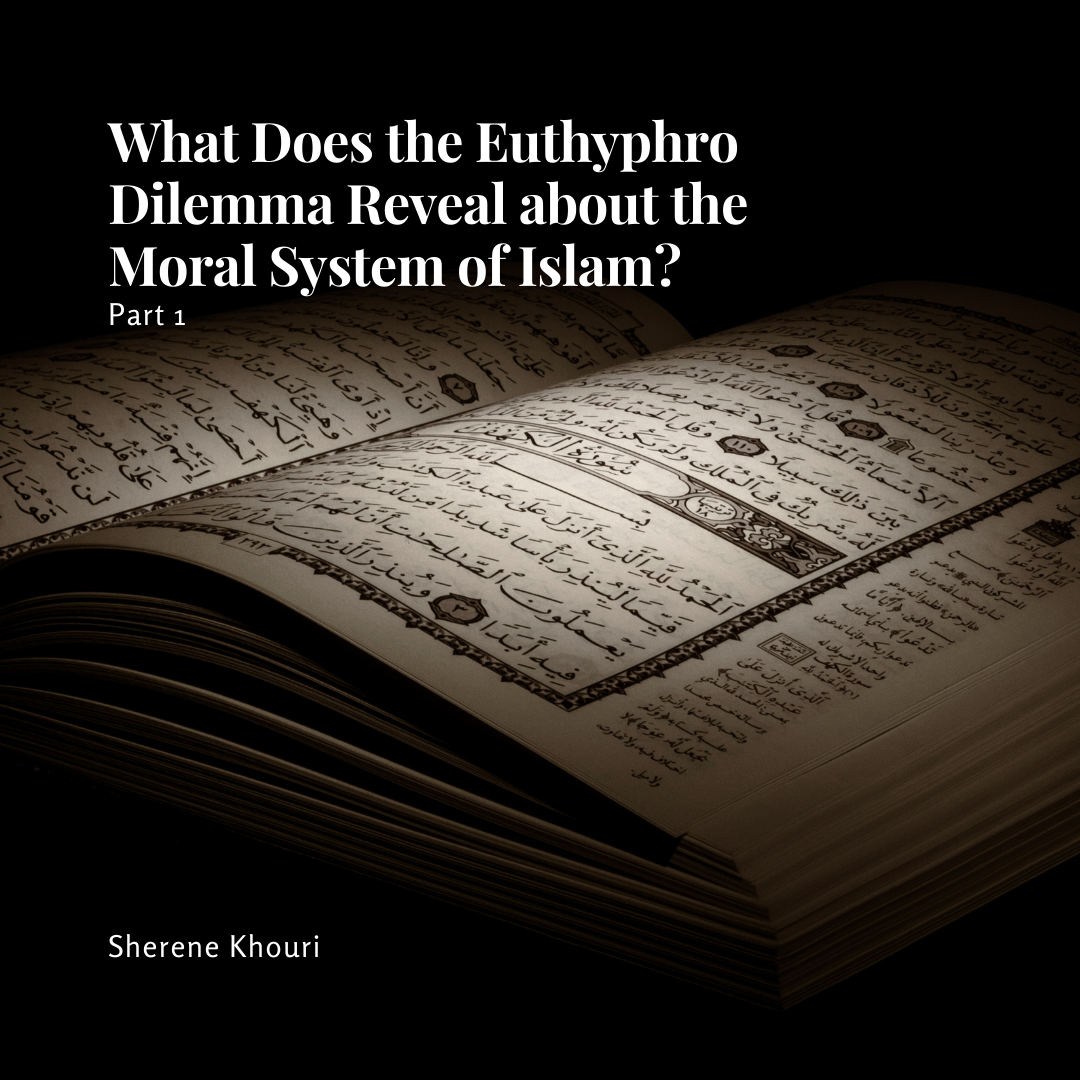By David Baggett and Jonathan Pruitt
Goodness is a broader category than moral goodness. One way to show the conceptual distinction, even if organic connections or family resemblances obtain between them, is that something is good to the extent it fulfills its intended function. A good car, to use a contemporary example, is good in virtue of and to the extent it provides reliable transportation. In that case, the goodness in question is not moral goodness, of course; but the same general principle, he thought, applied to the moral goodness of persons. The impetus behind this conviction might be a strongly teleological conception of everything in existence, including human beings. On such a view, persons, too, have an intended function, such as being rational beings. Again, to the extent a person fulfills this function, which includes cultivating virtues of character by developing the right sorts of settled dispositions, he is a good, indeed morally good, human being.
A different way to highlight the distinction between goodness per se and moral goodness in particular is by identifying two salient contrasts with goodness: badness and evil. Contrasting goodness with badness primarily pertains to the relative desirability of various states of affairs. A good state of affairs is one that we are positively drawn to, like a pleasant evening filled with mirth, whereas a bad state of affairs is one to which we are averse, like a painful toothache. When goodness is contrasted with evil, however, it is most natural to think of the ascription as applied to persons and their choices or characters. This was the import of Kant’s suggestion that the only unqualified good is a good will, a distinctive feature only of persons; this is arguably the province of moral goodness (Kant 9). So no state of affairs is rightly thought of as morally good or evil per se except in a secondary or derived sense. A hurricane, no matter how intense, is not morally evil in itself despite the havoc it wreaks, because hurricanes don’t have a mind of their own of which we can predicate such a moral property. At most we can say the hurricane is nonmorally bad because of the suffering it produces.
Moral goodness is one type of value; other comparable values traditionally identified include truth and beauty. Moral value is most naturally applicable to persons, but another disambiguation remains in order. Based on their exemplification of various virtues, persons might be thought morally good, but such an ascription remains importantly distinct from the moral worth or value of such persons. Attributing inherent value, dignity, or worth to persons is acknowledging the objective value they possess qua persons. Kant famously contrasted value in this sense with something like a price (Kant 46). An object or service might be worth a certain monetary amount, but treating persons as worth a particular price is irremediably unseemly. Moreover, even morally bad persons presumably still possess intrinsic human value. Such worth does not depend on their moral goodness, which is part of the import of qualifying it as “intrinsic,” in contrast with extrinsic or instrumental value.
An Aristotelian dictum is that the good is that at which all things aim, and in some cases the activity itself is the end (Aristotle 3). In speaking of an activity that is the end itself, part of what Aristotle had in mind is that some activities are worth doing for their own sake. In other words, some activities have intrinsic value. This is one way to flesh out the distinction between intrinsic and extrinsic goods. Money is often used as an example of a merely extrinsic or instrumental value. Rather than valuable in and of itself, its value derives from the fact that it can be exchanged for other goods (that themselves may have either intrinsic or extrinsic value). Whereas moral goodness primarily applies to persons and only secondarily to states of affairs, intrinsic moral value may have a broader primary application than persons alone. Presumably there are goods—for example, human activities like (at least some) friendships—that have intrinsic value.
G. E. Moore offered an “isolation test” that asks what value we would give something if it existed in absolute isolation, stripped of all its usual accompaniments (Moore 187). Of course, a thorny (even if not intractable) challenge in applying such a test is the risk of subtly replacing prescription with description in the thought experiment. H. P. Owen once made a distinction in this vicinity when he wrote that we may use the notion of intrinsic goodness in either a subjective or an objective sense (Owen 22). Calling something an intrinsic good in the subjective sense is to say that it is desirable “in itself,” while in the objective sense it possesses goodness as a property. A back rub might be thought of as an intrinsic good in the subjective sense, desirable in itself, but characterizing it as an objective intrinsic good strains credulity. Any sense in which goodness would inhere in a back rub as a property would not, at any rate, count as an intrinsic moral good.
Equipped with those distinctions, let’s now consider, by turns, the significance, first, of ascribing objective moral value to human persons, and, second, moral goodness to persons. First consider the contemporary Kantian, Christine Korsgaard. Her moral theory is an ostensible attempt at constructivism, which sees itself as an alternative to substantive moral realism. A key part of her interpretation of Kantian ethics is to fill in the content of potential maxims with agents’ existential commitments, practical identities, based in a sense of who people think they are. Such reflective endorsements can rectify the criticism of Kant’s categorical imperative that it is too formal and abstract to give a determinate enough sense of content to the moral law.
However, since not everyone would choose a sense of practical identity consistent with recognition of the dignity and value of other persons—think of a person whose self-identity is as a member of the Mafia—Korsgaard claims that “our identity as moral beings—as people who value themselves as human beings—stands behind our more particular practical identities” (Korsgaard 121). But Korsgaard’s attempt to do justice to the Kantian principle of respect for others seems to be a tacit recognition of moral realism—that others are in fact worthy of being shown such respect and accorded such dignity. Her effort to provide an alternative to substantive moral realism on this score seems to fail. If valuing is not a response to a property in the thing or action chosen, but merely an expression of one’s identity, morality would also become self-referential, and therefore intolerably narcissistic. Korsgaard is right to affirm that people have intrinsic value grounded simply in the kinds of beings that they are, but this is not constructivism.
Philippa Foot, in her naturalistic account of goodness, also fails to provide an account of the intrinsic moral value of human persons. Foot wants to show that judgments usually considered to be the special subject of moral philosophy really should be seen as belonging to a wider class of evaluations of conduct with which they share a common conceptual structure. In Aristotelian fashion, she argues that happiness is best understood in terms of flourishing, and to flourish is to instantiate the life form of that species. Perhaps the most significant flaw in her analysis is that her account seems to leave unanswered a most fundamental question: Is human flourishing of intrinsic value? She surely thought it was, but can her account explain it? It seems unlikely.
To see why, consider cancer cells, which similarly feature their own natural normativities without such categoricals, however teleologically connected to their survival, implying anything of intrinsic moral value in their survival and flourishing (Foot 48-49). Foot is not suggesting that the biologically adaptive patterns of behavior in cancer cells or even tigers either entail or are predicated on objective moral facts about the value of their survival. Rather, in light of the sorts of entities or species that they are, some behaviors simply conduce better to their flourishing than others.
True enough, but then we’re left with this question: how to effect Foot’s slide from natural normativity to objective morality in the case of human beings? For she is admitting in the case of animals and pestilential creatures that her analysis is neither based on the assumption of, nor logically implies, any intrinsic moral value in their surviving and thriving. Why then is it different for human beings? The insuperable challenge for Foot is to account for such differences with the resources to which she’s limited herself, and it is not at all clear that she can. In fact, in light of what she has said, there are reasons to think that she cannot. If moral value does not follow from the teleologically significant natural normativities of pestilential creatures or animals, then why does it do so in the case of human beings?
Some secular nonnaturalist ethical realists suggest that moral goodness supervenes on natural properties, but among the challenges that sort of attempt encounters is accounting for how physical properties can cause abstract properties to come into existence in light of their qualitative differences. Of course, there’s no shortage of attempts by various secularist theorists to provide accounts of objective values, though an important recurring challenge is accounting adequately for their normative force.
In light of the challenges naturalists and secularists encounter on this score, some consider intrinsic human value and dignity as one of the divine signs that provide a signal of transcendence, a distinct moral phenomenon in need of a substantive enough explanation. How might a classical theist account for the intrinsic value or essential equality of human persons? David Bentley Hart suggests that Christianity gradually succeeded in sowing in human consciences a tenderness of moral intuitions. In contrast to the casual destruction of lives among the ancients, he says that we would do well to reflect that theirs was a more “natural” disposition toward reality. To make even the best of us conscious (or at least able to believe in) the moral claim of all other persons on us required an extraordinary moment of awakening in a few privileged souls. It was Christian teaching, he argues, that inexorably shows the splendor and irreducible dignity of the divine humanity within all persons. For those tempted to historical naiveté on this matter, he also issues a sober warning of how precarious and easily forgotten this mystery is that only charity can penetrate (Hart 214).
Christian theists suggest that, on a Christian understanding, the value of human persons is found in the personhood of God. Similarly, Robert Adams thinks that the value of persons derives from what they have in common, a shared, relevant resemblance to God. John Hare partially demurs at this point, however, and in doing so adds an important element about how human dignity can be both intrinsic and derivative. His point is that an account of goodness rooted in God must emphasize not just what good things they share in common but the distinctive ways they are different. For in those very differences are reflections of disparate aspects of God. Human beings aren’t called to reflect God only in virtue of their collective humanity but also as individuals. This is why Hare is skeptical of Moore’s aforementioned isolation test for intrinsic goods, for Hare thinks it isn’t clear that any necessarily-God-maintained good could exist in complete isolation, so as to be the object of the required thought experiment. He suggests instead that a normative property can be intrinsic even if it is necessarily given not just its existence but its goodness by God. Part of his motivation in doing so is his conviction that the good that is the individual’s destination is itself both a relation and a kind of intrinsic good (Hare 188). Whether intrinsic goodness can essentially include such a relational component is a recurring bone of contention between certain secular and religious ethicists.
Turning now to moral goodness, Hart is bold enough to suggest that among the mind’s transcendental aspirations, it is the longing for moral goodness that is probably the most difficult to contain within the confines of a naturalist metaphysics. Among the challenges naturalists face in accounting for moral goodness and such a longing is the inevitable gap between the best that human beings can morally do by dint of their most valiant efforts at moral improvement and the uncompromising standard of moral goodness. At best humans can experience some finite amount of moral development in their lifetime, but that would leave anything like the hope for unalloyed moral goodness beyond our reach. Secular efforts to close this “moral gap” include lowering the moral demand, exaggerating human capacities, or replacing divine assistance to close the gap with a secular substitute. The Christian doctrine of sanctification recognizes the need for divine assistance without exaggerating human capacities or compromising the moral demand.
This line of thought is most germane to a performative variant of the moral argument for God’s existence, which is closely related to the human need to forgive and to be forgiven and liberated from guilt for failing to meet the standard of moral goodness. Here too the resources of Christian theology, in particular its doctrine of atonement and justification, might be seen as especially effective at providing a sufficiently sturdy solution. H. P. Owen, John Henry Newman, A. E. Taylor, and William Sorley are important examples of ethicists who made a centerpiece of their moral apologetic this component of forgiveness for wrongdoing and freedom from a condition of objective moral guilt. Then, once sins are forgiven, sin itself can be ultimately expunged.
The quest for attaining moral goodness potentially raises what Henry Sidgwick called the “dualism of practical reason.” It seems unavoidable that there are occasions in which conflicts arise between what’s doing what’s good for another and what’s good for oneself, and both impulses are morally legitimate. Sidgwick considered this tension to be fairly intractable for ethics, and the only means he saw of resolving it involved a providential God who ensures that the morally good are also ultimately fulfilled and satisfied people. He himself was unwilling to embrace theism on this account, and chose to live with the intractable tension, while admitting that, without a solution, it’s difficult to see how the moral enterprise is altogether coherent.
Even more foundational than either the performative and rational versions of the moral argument, however, is the metaphysical inquiry into the nature of goodness itself. Secular attempts to offer deflationary accounts of goodness, according to which it is reducible to something else (pleasure, fulfillment, etc.) are legion, but many of these efforts fall prey to the naturalistic fallacy; there’s more to say, of course, but for now let’s set those to the side. A contrasting theistic account here is the Thomistic equation of goodness with being. Being and goodness, on this view, co-refer, picking out the same referent under two different names and descriptions.
A more contemporary example of a distinctively theistic account of moral goodness comes from Robert Adams, who takes intimations of an ultimate good or paradigmatic archetype of goodness and beauty as veridical, akin to beatific visions of God among theists (Adams ch.1). Because of the similarity of these perceptions he thinks it only natural that an Anselmian theist would take God himself to be what is apprehended in those moments (Adams 45). Rather than a Kantian, Aristotelian, or utilitarian theory of the good, his theistic Platonic account sees an infinite and transcendent good, understood as God himself, as foundational to the right axiological account. His theory comes from an extensive argument canvassing the language and phenomenology of moral experience, and entails that finite goods are good in virtue of somehow resembling or otherwise participating in goodness itself.
Of course, these are just a few examples of a theistic account of the good, but their underlying shared intuition is important. It resonates with key features of goodness. The source of moral goodness must plausibly be perfectly good, as an omnibenevolent God is, which distinguishes the operative theology from that of the fallible and finite gods of, say, the Greek pantheon riddled with foibles and caprice. God qualifies as the best account of both the first and final cause of moral goodness.
A common view of many historical Christian thinkers is that God is the Good itself, and that all things but God are good by participation. The goodness of God is a central (perhaps the central) feature of Augustine’s thought (cf. Augustine 114ff, 1998). Augustine endorses the classical moral psychology, according to which we do all that we do in relation to what we take to be our summum bonum, God himself: “Here the supreme good is sought, the good to which we refer everything that we do, desiring it not for the sake of something else, but for its very own sake. Obtaining it, we require nothing further in order to be happy. It is truly called the ‘end,’ because we want everything else for the sake of this, but this we want only for itself” (Augustine 63-64, 1994).
References
Adams, Robert 1999. Finite and Infinite Goods: A Framework for Ethics. Oxford: Oxford University Press.
Aristotle, The Nicomachean Ethics 2009. Oxford: Oxford University Press.
Augustine, Saint 1998. The Confessions. Oxford: Oxford University Press.
Augustine, Saint 1994. Political Writings. Indianapolis: Hackett.
Foot, Philippa 2003. Natural Goodness. Oxford: Clarendon Press.
Hare, John E. 2015. God’s Command. Oxford: Oxford University Press.
Hart, David Bentley 2015. The Experience of God: Being, Consciousness, Bliss. New Haven, CT: Yale University Press.
Kant, Immanuel 2012. Groundwork of the Metaphysics of Morals. Cambridge: Cambridge University Press. 2nd edition.
Korsgaard, Christine 1996. The Sources of Normativity. Cambridge: Cambridge University Press.
MacDonald, Scott, ed., 1991. Being and Goodness: The Concept of the Good in Metaphysics and Philosophical Theology. Ithaca: Cornell University Press.
Moore, G. E. 1903/1993. Principia Ethica. Cambridge: Cambridge University Press.
Newman, John 2006. Fifteen Sermons Preached before the University of Oxford. Oxford. Oxford University Press.
Owen, H. P. 1954. The Moral Argument for Christian Theism. London: George Allen & Unwin.
Further Readings
Ewing, A. C. 1973. Value and Reality: The Philosophical Case for Theism. London: George Allen & Unwin.
Kinghorn, Kevin 2016. A Framework for the Good. South Bend, IN: University of Notre Dame Press.




































